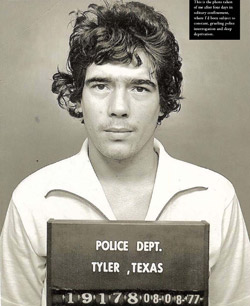 One of the most common misconceptions in the law is that one actually has to commit a crime themselves to face criminal charges. Better said, it is a misconception that a person must commit all the elements of an offense themselves to be convicted of a crime. However, old distinctions such as “accessory” and “accomplice” have been abolished under Texas law, and a person who commits a crime with the intent that it be committed can be convicted of the offense.
One of the most common misconceptions in the law is that one actually has to commit a crime themselves to face criminal charges. Better said, it is a misconception that a person must commit all the elements of an offense themselves to be convicted of a crime. However, old distinctions such as “accessory” and “accomplice” have been abolished under Texas law, and a person who commits a crime with the intent that it be committed can be convicted of the offense.
Section 7.01 of the Texas Penal Code states “(a) A person is criminally responsible as a party to an offense if the offense is committed by his own conduct, by the conduct of another for which he is criminally responsible, or by both. (b) Each party to an offense may be charged with commission of the offense…” Thus, all you have to be is a “party” to a crime by being “criminally responsible” for another’s conduct. Read section two to learn what this actually means.
Section 7.02 of the Penal Code states that “(a) A person is criminally responsible for an offense committed by the conduct of another if: (1) acting with the kind of culpability required for the offense, he causes or aids an innocent or nonresponsible person to engage in conduct prohibited by the definition of the offense; (2) acting with intent to promote or assist the commission of the offense, he solicits, encourages, directs, aids, or attempts to aid the other person to commit the offense; or (3) having a legal duty to prevent commission of the offense and acting with intent to promote or assist its commission, he fails to make a reasonable effort to prevent commission of the offense.”
 Sherman & Plano, TX Criminal Defense Lawyer Blog
Sherman & Plano, TX Criminal Defense Lawyer Blog



 The age old question about whether to consent to a DWI breath or blood test is still the question many people who socially drink and fear a DWI investigation want answered, particularly now that they read in the news that cops will forcefully draw their blood if they refuse. The answer in most situations is still “NO”, for several reasons.
The age old question about whether to consent to a DWI breath or blood test is still the question many people who socially drink and fear a DWI investigation want answered, particularly now that they read in the news that cops will forcefully draw their blood if they refuse. The answer in most situations is still “NO”, for several reasons. The base offense level for a prohibited person in possession of a firearm is relatively low. Advisory Sentencing Guideline 2k2.1 calls for a base offense level of 14 if a person is prohibited by law from firearm possession, which along with a 3 point reduction for acceptance of responsibility yields an advisory base offense level of 11. With no criminal history (category I), that is an advisory guidelines range of 8-14 months in the federal penitentiary.
The base offense level for a prohibited person in possession of a firearm is relatively low. Advisory Sentencing Guideline 2k2.1 calls for a base offense level of 14 if a person is prohibited by law from firearm possession, which along with a 3 point reduction for acceptance of responsibility yields an advisory base offense level of 11. With no criminal history (category I), that is an advisory guidelines range of 8-14 months in the federal penitentiary. My two oldest nephews and six of their friends came out and wanted to learn basketball, and drew me as their coach for better or worse. I felt bad when I was too hard on them at times (although I was too easy at others), but they all gave a ton of effort for three months and became one unit. Before our first game, only one had really experienced winning basketball to my knowledge, but by the end they had each taken part in a winning season and we had all advanced tremendously experience-wise. My defensive pride made me teach them man to man defense, which is particularly difficult at a young age due to its requirement of divided attention. In man to man, kids must master focusing on the ball and on their man, never losing sight of or position in relation to either. To see them play this defense very, very well for their age by the end of the year was a real blessing. Along with mastering other parts of the game, it showed how hard they worked and how serious they took basketball. I hope they continue to do so, as they have the foundation talent wise to be very special throughout their school years.
My two oldest nephews and six of their friends came out and wanted to learn basketball, and drew me as their coach for better or worse. I felt bad when I was too hard on them at times (although I was too easy at others), but they all gave a ton of effort for three months and became one unit. Before our first game, only one had really experienced winning basketball to my knowledge, but by the end they had each taken part in a winning season and we had all advanced tremendously experience-wise. My defensive pride made me teach them man to man defense, which is particularly difficult at a young age due to its requirement of divided attention. In man to man, kids must master focusing on the ball and on their man, never losing sight of or position in relation to either. To see them play this defense very, very well for their age by the end of the year was a real blessing. Along with mastering other parts of the game, it showed how hard they worked and how serious they took basketball. I hope they continue to do so, as they have the foundation talent wise to be very special throughout their school years. This year I had the privilege of coaching eight young men in 5th and 6th grade basketball. I thought that I would descend from the clouds and teach them everything there is to know about basketball, but I believe that I learned a whole lot more about coaching, teaching and humanity through this experience than I was probably able to give back. It was very special to see eight kids learn how to play as one unit, play for each other, and overcome adversity and the ups and downs of a serious basketball season, eventually firing on all cylinders together up and down the basketball floor. This was a special group of kids and part of a special class group at their small town school, and they will achieve big things in the future.
This year I had the privilege of coaching eight young men in 5th and 6th grade basketball. I thought that I would descend from the clouds and teach them everything there is to know about basketball, but I believe that I learned a whole lot more about coaching, teaching and humanity through this experience than I was probably able to give back. It was very special to see eight kids learn how to play as one unit, play for each other, and overcome adversity and the ups and downs of a serious basketball season, eventually firing on all cylinders together up and down the basketball floor. This was a special group of kids and part of a special class group at their small town school, and they will achieve big things in the future. The “prohibited person” statute under federal law, defining who can possess a firearm and who cannot, is pretty straight forward. You will be surprised to learn the many classes of people who cannot possess a firearm, not just convicted felons. If you meet one of these categories, it is a federal felony to possess a firearm or ammunition. I usually don’t copy and paste whole statutes, but the statutes are pretty straight forward. 18 U.S.C. 922(g) states, with the assistance of my commentary in caps and parentheses, that:
The “prohibited person” statute under federal law, defining who can possess a firearm and who cannot, is pretty straight forward. You will be surprised to learn the many classes of people who cannot possess a firearm, not just convicted felons. If you meet one of these categories, it is a federal felony to possess a firearm or ammunition. I usually don’t copy and paste whole statutes, but the statutes are pretty straight forward. 18 U.S.C. 922(g) states, with the assistance of my commentary in caps and parentheses, that: Not to be outdone by the wisdom of the Oklahoma Legislature, our braniacs in Austin last year enacted “aggravated” driving while intoxicated provisions similar to the Sooner state, whereby a first time offender now faces a year in jail if the person 1) commits the offense of driving while intoxicated, and 2) “If it is shown on the trial of an offense under this section that an analysis of a specimen of the person’s blood, breath, or urine showed an alcohol concentration level of 0.15 or more at the time the analysis was performed.” The offense is enhanced from a Class B to a Class A misdemeanor.
Not to be outdone by the wisdom of the Oklahoma Legislature, our braniacs in Austin last year enacted “aggravated” driving while intoxicated provisions similar to the Sooner state, whereby a first time offender now faces a year in jail if the person 1) commits the offense of driving while intoxicated, and 2) “If it is shown on the trial of an offense under this section that an analysis of a specimen of the person’s blood, breath, or urine showed an alcohol concentration level of 0.15 or more at the time the analysis was performed.” The offense is enhanced from a Class B to a Class A misdemeanor. Mr. Hurd will have a tougher time in his detention hearing and his case because, by his own statements reported to the media, he is the man in charge of his conspiracy. The primo hombre, so to speak. The Federal sentencing scheme punishes this as a “leadership role,” which normally increases the amount of time one does in the penitentiary and can block one of the few four-leaf clovers in the Sentencing Guidelines, the “safety valve.” (It was reported that Mr. Hurd stated “…his co-conspirator is in charge of doing the majority of the deals as HURD focuses on the ‘higher-end’ deals. HURD subsequently inquired if the UCA (undercover operative) and the CI (confidential informant involved in the case) could provide him with Mexican cellular telephones, as HURD believed that law enforcement did not have the capability of ‘listening’ to Mexican telephones.”) I have no knowledge of Mexican cellular phones, and won’t attempt to go there.
Mr. Hurd will have a tougher time in his detention hearing and his case because, by his own statements reported to the media, he is the man in charge of his conspiracy. The primo hombre, so to speak. The Federal sentencing scheme punishes this as a “leadership role,” which normally increases the amount of time one does in the penitentiary and can block one of the few four-leaf clovers in the Sentencing Guidelines, the “safety valve.” (It was reported that Mr. Hurd stated “…his co-conspirator is in charge of doing the majority of the deals as HURD focuses on the ‘higher-end’ deals. HURD subsequently inquired if the UCA (undercover operative) and the CI (confidential informant involved in the case) could provide him with Mexican cellular telephones, as HURD believed that law enforcement did not have the capability of ‘listening’ to Mexican telephones.”) I have no knowledge of Mexican cellular phones, and won’t attempt to go there. Wide receiver Sam Hurd, a well-liked player whose hard work earned him a roster spot on the Dallas Cowboys a few years ago, and eventually landed him a $5.1 million contract with the Chicago Bears, decided to risk it all by investing his money not in the fickle stock market but in cocaine and marijuana. Now, according to the amounts of drugs being discussed on Yahoo and the Dallas Morning News, Mr. Hurd is facing ten to life in the Federal penitentiary for conspiring to distribute five kilograms or more of cocaine in the Northern District of Texas and elsewhere. The five kilograms of cocaine is an important amount as it triggers the mandatory minimum of ten years imprisonment (and up to life).
Wide receiver Sam Hurd, a well-liked player whose hard work earned him a roster spot on the Dallas Cowboys a few years ago, and eventually landed him a $5.1 million contract with the Chicago Bears, decided to risk it all by investing his money not in the fickle stock market but in cocaine and marijuana. Now, according to the amounts of drugs being discussed on Yahoo and the Dallas Morning News, Mr. Hurd is facing ten to life in the Federal penitentiary for conspiring to distribute five kilograms or more of cocaine in the Northern District of Texas and elsewhere. The five kilograms of cocaine is an important amount as it triggers the mandatory minimum of ten years imprisonment (and up to life). In 1991, thirteen years after his original conviction and death sentence, the Supreme Court reversed his conviction due to illegal psychiatric testimony. Although a blatant violation of the right to remain silent and the right to counsel, the prosecution arranged for Mr. Cook to be interviewed by a State psychiatrist in the months following his arrest, the idea being that this psychiatrist would come in and testify that Mr. Cook was a continuing danger to society and needed to die. The second trial resulted in a hung jury. The prosecution tried Mr. Cook a third time and received a second death sentence in 1994, but this conviction was overturned in 1997.
In 1991, thirteen years after his original conviction and death sentence, the Supreme Court reversed his conviction due to illegal psychiatric testimony. Although a blatant violation of the right to remain silent and the right to counsel, the prosecution arranged for Mr. Cook to be interviewed by a State psychiatrist in the months following his arrest, the idea being that this psychiatrist would come in and testify that Mr. Cook was a continuing danger to society and needed to die. The second trial resulted in a hung jury. The prosecution tried Mr. Cook a third time and received a second death sentence in 1994, but this conviction was overturned in 1997.